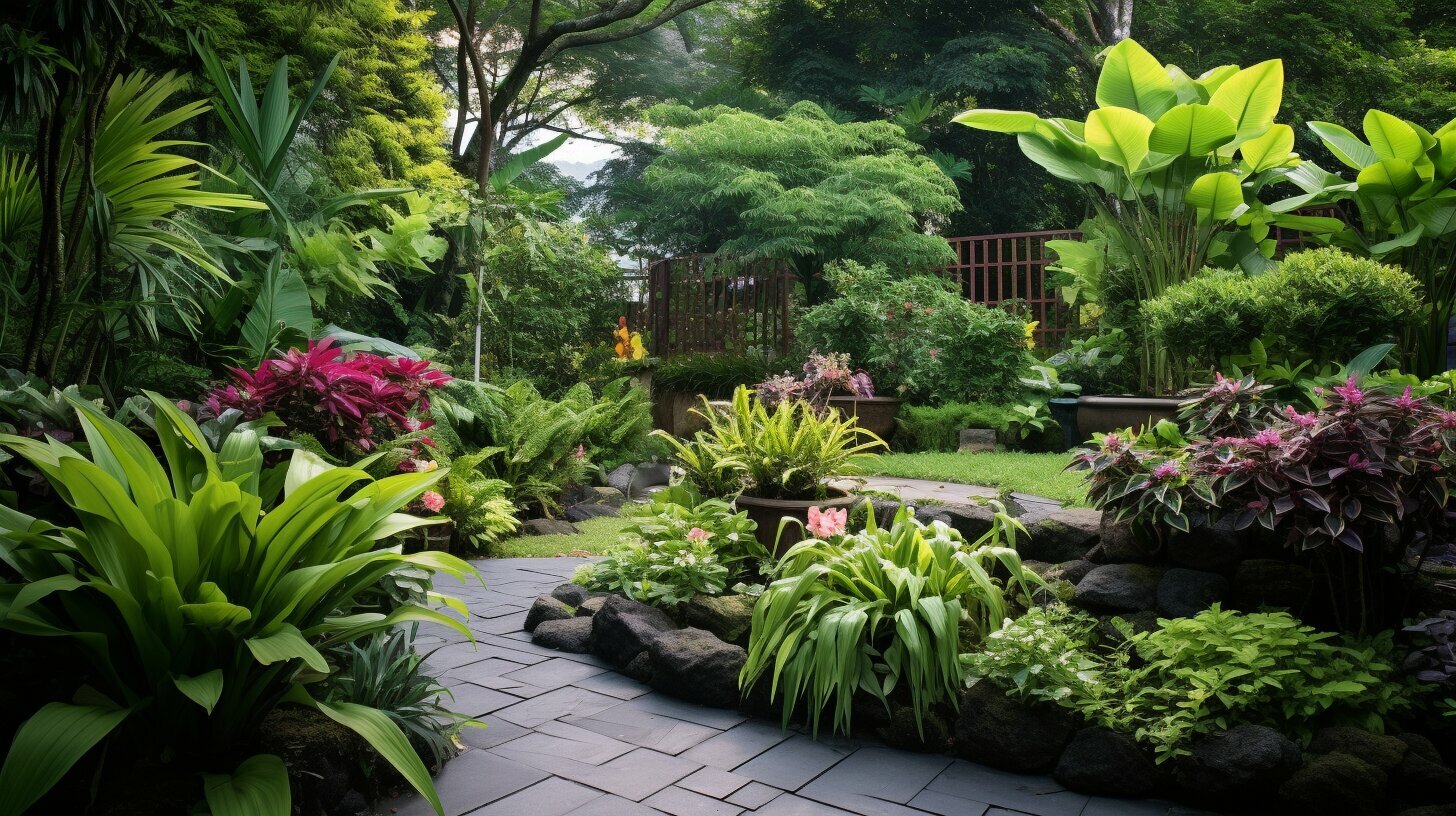Mosquitoes can quickly ruin an enjoyable summer evening, leaving you with itchy welts and frustration. But instead of dousing your outdoor space with harmful chemicals, why not try a more natural approach? By growing mosquito repelling plants in your garden, you can create a beautiful and effective barrier against these pesky insects.
Not only do these plants add to the aesthetics of your outdoor space, but they also emit natural compounds that mosquitoes find unpleasant, deterring them from landing and biting. By incorporating plants like lavender, citronella, geraniums, and rosemary into your garden, you can enjoy a bite-free summer without resorting to harmful chemicals.
Key Takeaways
- Mosquito repelling plants can keep your outdoor space bite-free and beautiful
- These plants emit natural compounds that mosquitoes dislike, making them an effective deterrent
- Lavender, citronella, geraniums, rosemary, marigolds, catnip, basil, and mint are all great options
- Removing standing water, using fans, and wearing long-sleeved clothing can also help control mosquitoes
- By combining mosquito repelling plants with other control measures, you can enjoy a peaceful and mosquito-free summer
Mosquito Repelling Plants: The Power of Natural Insect Deterrents
Are you tired of constantly swatting away mosquitoes while trying to enjoy your outdoor spaces? It’s time to fight back against these pesky insects with the power of mosquito repelling plants. By incorporating these natural mosquito deterrent plants into your garden, you can create a barrier that keeps mosquitoes away without using harmful chemicals.
Mosquito repelling plants have been used for centuries to ward off mosquitoes and other insects. These plants contain natural compounds that mosquitoes find unpleasant, deterring them from landing and biting. By planting them strategically around your garden, you can create a mosquito-free environment that allows you to enjoy your outdoor spaces without worry.
Disclosure: When you buy through links on our site, we may earn an affiliate commission.
Some of the most effective mosquito deterrent plants include:
- Citronella: This classic mosquito repelling plant has a strong, citrus-like scent that masks the attractants mosquitoes use to locate their prey.
- Lavender: Not only does lavender have a soothing scent, but it also emits a fragrance that mosquitoes don’t like.
- Geraniums: These hardy plants add vibrant color to your garden while also repelling mosquitoes with their lemony fragrance.
- Rosemary: This versatile herb helps to mask the scent of humans, making it harder for mosquitoes to find you.
- Marigolds: These bright and cheerful flowers emit a fragrance that mosquitoes find offensive, keeping them away from your garden.
- Catnip: Not just for cats, catnip is a member of the mint family and contains nepetalactone, a natural mosquito repellent.
- Basil: This popular culinary herb has a strong scent that helps to repel mosquitoes and other insects.
- Mint: The refreshing scent of mint masks the attractants that mosquitoes use to find their prey, making it an effective natural mosquito repellent.
By incorporating these mosquito repelling plants into your garden, you can create a beautiful and functional outdoor space that is also mosquito-free. Remember to also remove any standing water where mosquitoes breed, use fans to create airflow, and wear light-colored, long-sleeved clothing to reduce attractants for mosquitoes.

Lavender – Nature’s Mosquito Repellent
Lavender is one of the most popular mosquito repellent herbs, prized for its ability to keep mosquitoes at bay while providing a beautiful addition to your garden. The pleasant fragrance of lavender is a natural mosquito repellent, making it a popular choice for garden plants to repel mosquitos. Its flowers are a stunning purple color, adding to the visual appeal of your outdoor space.
You can plant lavender near seating areas or entranceways to keep mosquitoes away from where you spend your time. Additionally, you can use lavender oil as a natural repellent on your skin or clothing. Mix a few drops of lavender oil with water in a spray bottle and apply it to your skin or clothing before going outside.
Not only does lavender repel mosquitoes, but it also has a calming effect, making it useful for reducing anxiety and promoting relaxation. Whether you are sitting outside reading a book or enjoying a meal with friends and family, the presence of lavender will help to keep mosquitoes at bay and create a peaceful atmosphere.

“Lavender is one of the most popular mosquito repellent herbs, prized for its ability to keep mosquitoes at bay while providing a beautiful addition to your garden.”
Citronella – A Time-Tested Mosquito Repellent
Citronella is a popular outdoor plant known for its strong, citrus-like scent that repels mosquitoes and other insects. The oil from citronella has been used for centuries as a natural mosquito repellent.
Placing citronella plants in pots or containers around your patio or outdoor gathering areas can help control mosquito populations without relying on harmful chemicals. The scent of citronella masks the attractants that mosquitoes use to locate their prey, making it an effective mosquito deterrent plant for your garden.
| Pros | Cons |
|---|---|
| – Effective mosquito control | – Can be sensitive to cold temperatures |
| – Easy to grow in pots or containers | – May lose scent over time |
| – Fresh leaves can be used to make homemade insect repellent |
Citronella plants should be placed in full sun and well-draining soil. They can be grown as perennials in USDA zones 9-11, or as annuals in colder climates.
By incorporating citronella plants into your garden, you’ll not only enjoy their beautiful foliage, but also their powerful mosquito-repelling properties. If you’re looking for a natural mosquito repellent outdoor plant, citronella is a time-tested and effective choice.

Geraniums – Beautiful and Bug-Repelling
If you are looking for a beautiful and effective way to repel mosquitoes from your garden, look no further than geraniums. These vibrant plants not only add a pop of color to your outdoor space but also emit a lemony fragrance that mosquitoes dislike. Plant them in pots or directly in the ground near seating areas or windows to create a mosquito-free environment.
Geraniums are hardy plants that are easy to grow, making them a popular choice for mosquito control. They are also low maintenance, requiring only regular watering and occasional pruning. Whether you have a small balcony or a spacious backyard, incorporating geraniums into your garden is a great way to repel mosquitoes naturally.
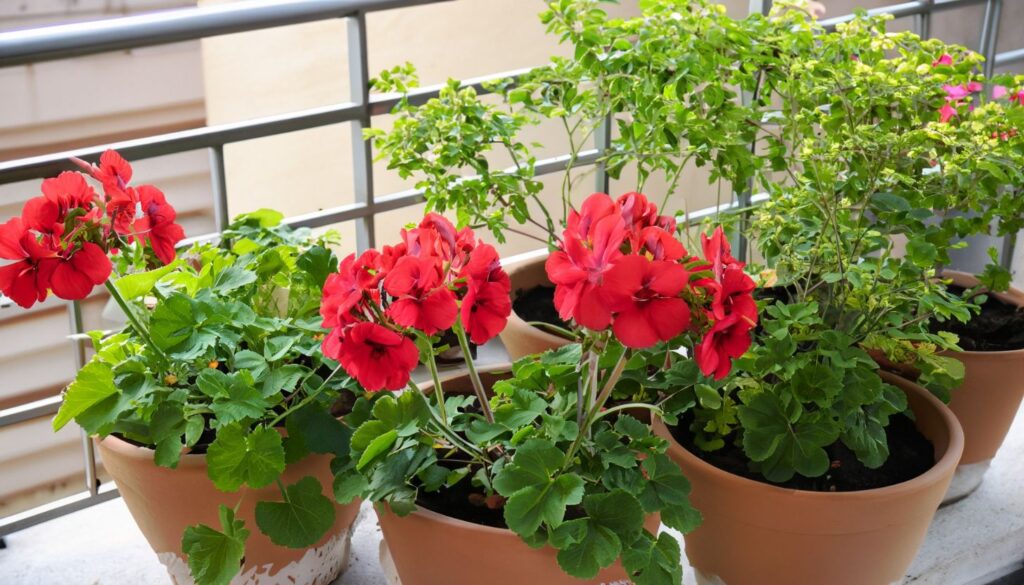
Another benefit of geraniums is that they also repel other insects, such as flies and gnats, making them a versatile addition to your garden. With their bright blooms and fragrant foliage, geraniums are sure to add both beauty and functionality to your mosquito repellent garden.
Rosemary – A Multi-Purpose Mosquito Repellent
Rosemary is a versatile herb that not only adds flavor to your cooking but also repels mosquitoes. The aromatic scent of rosemary helps to mask the scent of humans, making it harder for mosquitoes to find you. Incorporate rosemary into your garden or plant it in pots near outdoor seating areas for maximum effectiveness.
Rosemary is easy to grow and requires well-drained soil and full sun. You can plant it in a garden bed or in pots on your patio or balcony. To maintain its shape, prune the plant regularly, which will also release more of the oils that repel mosquitoes.
In addition to its mosquito-repelling properties, rosemary has other benefits. It is high in antioxidants and anti-inflammatory compounds, making it a great addition to your diet or as an ingredient in natural skincare products. So, grow some rosemary in your garden or in pots on your patio for a natural mosquito repellent and a multi-purpose herb.
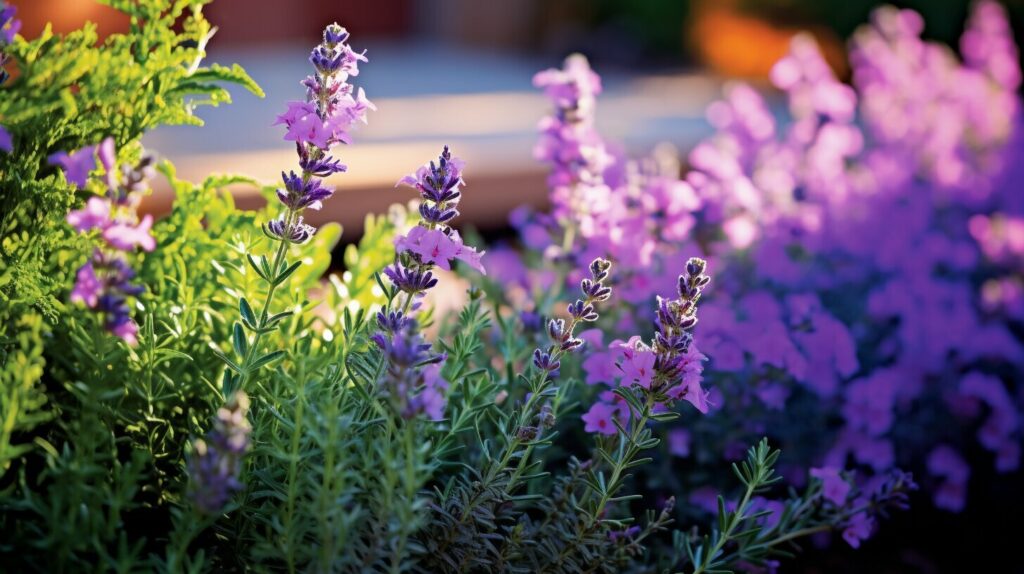
Marigolds – Nature’s Bug-Repelling Beauties
Marigolds are not just pretty flowers; they also have natural mosquito-repelling properties. These bright and cheerful plants emit a fragrance that mosquitoes find offensive, keeping them away from your garden. Plant marigolds in sunny areas or use them as border plants to create a mosquito-free zone.
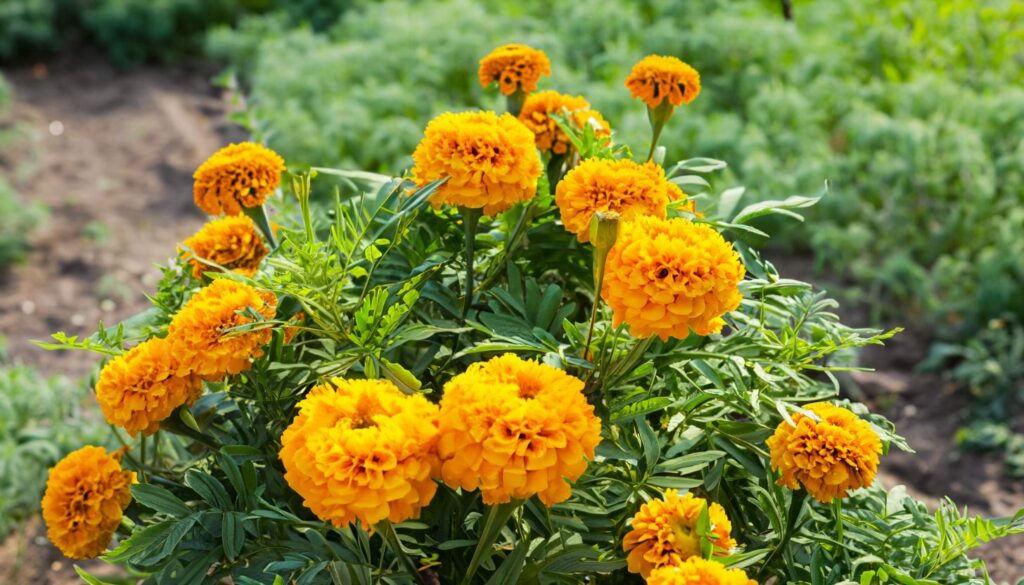
Marigolds are easy to grow and care for, making them a popular choice for natural mosquito control. They also have the added benefit of repelling other bugs and pests in your garden. Plant them in pots or directly in the ground, and enjoy a beautiful and pest-free outdoor space.
Catnip – Not Just for Cats
Catnip is a member of the mint family and is well-known for its appeal to cats. However, it also has the ability to repel mosquitoes. The active compound in catnip, nepetalactone, is a natural mosquito repellent. Plant catnip in pots or grow it in a designated area to keep mosquitoes at bay.
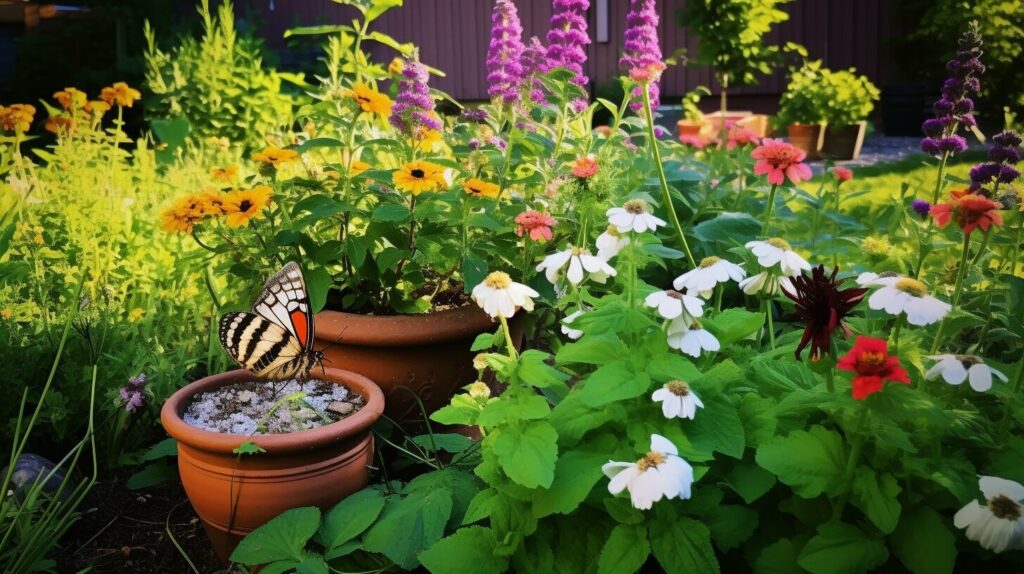
Similar to mint, catnip can become invasive if not contained. Keep this in mind when planting it in your garden. If you’re unsure about growing catnip yourself, many nurseries and garden centers offer pre-potted catnip that you can simply place around your outdoor space.
To use catnip as a mosquito repellent, crush the leaves to release the oils and rub them on your skin or clothing. You can also boil the leaves to make a homemade catnip repellent spray.
Adding catnip to your mosquito-repelling garden is a great way to naturally keep insects away without resorting to harmful chemicals.
Basil – A Culinary Herb with Mosquito-Repelling Properties
Basil is not only a delicious herb used in many dishes, but it also has mosquito-repelling properties. The strong scent of basil helps to repel mosquitoes and other insects, making it an ideal addition to your garden. Plant basil near outdoor seating areas or use it in pots on your patio to create a mosquito-free environment.
Not only is basil effective at repelling mosquitoes, but it is also easy to grow. Basil requires full sun and well-drained soil, making it a perfect addition to any herb garden. Additionally, basil can be used in many recipes, making it a versatile and useful herb to have on hand.
To use basil as a mosquito repellent, you can crush the leaves and rub them on your skin or place a few bunches of fresh basil on your outdoor table to deter mosquitoes. Alternatively, you can make a homemade mosquito spray by steeping basil leaves in boiling water and adding a bit of vodka to create a tincture.
Overall, basil is an excellent natural mosquito repellent that can also add flavor to your meals. By incorporating basil into your garden, you can enjoy a mosquito-free outdoor space while also having a useful herb on hand for cooking.

Mint – A Refreshing Mosquito Deterrent
Mint is not only a refreshing herb but also a natural mosquito repellent that can keep these pesky insects at bay. Its strong aroma helps to mask the attractants that mosquitoes use to locate their prey, making it an effective deterrent.
You can easily incorporate mint into your garden or patio by growing it in pots or planting it in the ground. This plant is easy to care for and can be harvested for use in various culinary dishes and drinks.
To maximize the mosquito-repelling properties of mint, crush the leaves to release the essential oils and place them in a small dish near outdoor seating areas. Alternatively, you can steep the leaves in boiling water and use the resulting liquid as a natural insect repellent.
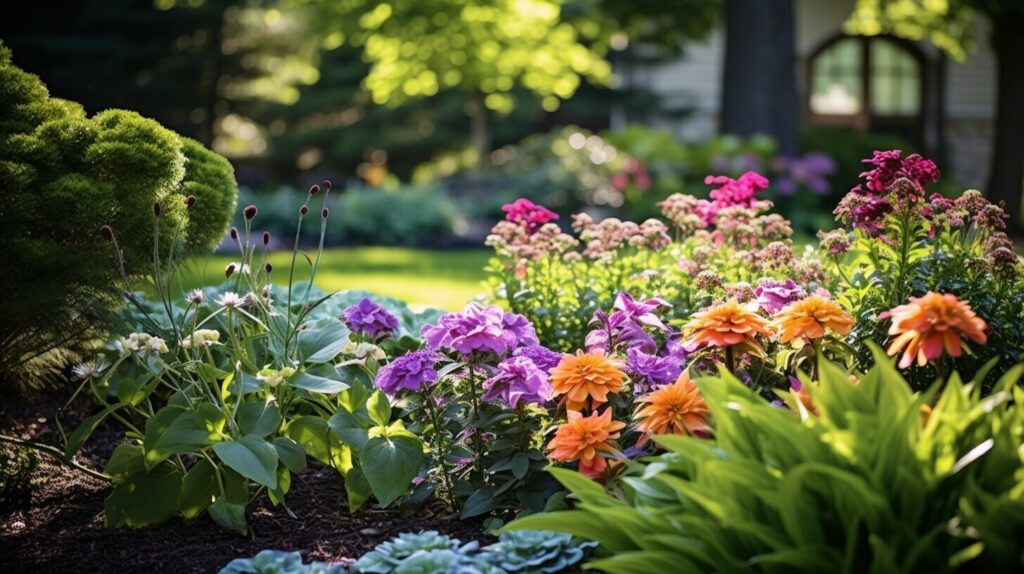
Growing insect repelling plants like mint is an excellent way to keep mosquitoes away without resorting to harmful chemicals. By incorporating these plants into your garden, you can create a natural and beautiful barrier that protects you from mosquitoes all summer long.
Additional Tips for Mosquito Control
In addition to planting mosquito repelling plants, there are other measures you can take to control mosquitoes in your outdoor space. By following these tips, you can create a mosquito-free environment and enjoy your time outdoors:
- Remove standing water from your yard, including birdbaths, empty pots, and other containers that can collect water. Mosquitoes breed in standing water, so removing it will eliminate potential breeding sites.
- Use fans to create airflow and keep mosquitoes away. Mosquitoes are weak fliers, and a gentle breeze can be enough to keep them at bay.
- Wear light-colored, long-sleeved clothing to reduce attractants for mosquitoes. Mosquitoes are attracted to dark colors and can detect the heat and carbon dioxide emitted by our bodies.
By combining these measures with mosquito repelling plants, you can create a comfortable and bite-free outdoor space.
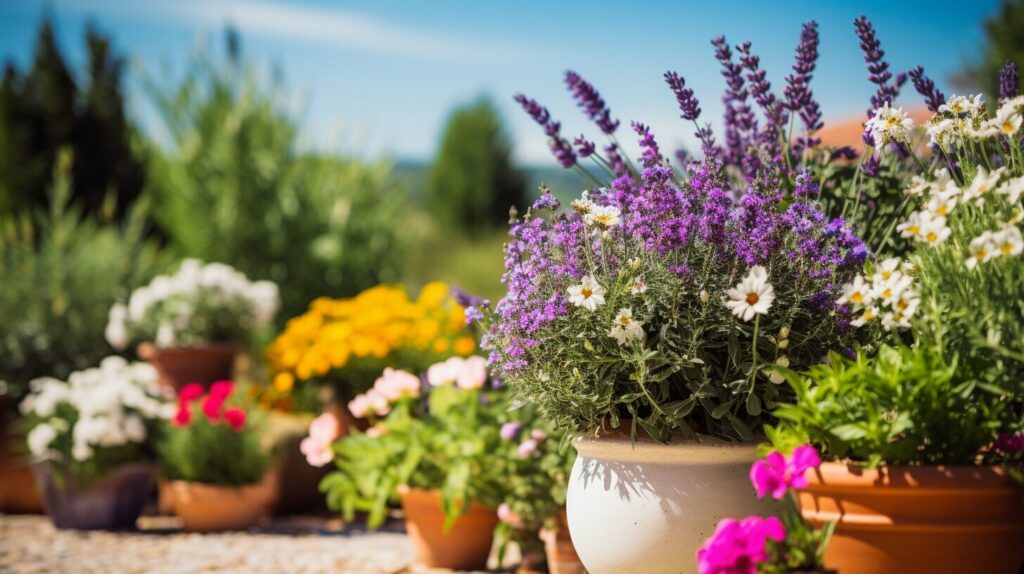
Conclusion
Growing mosquito repelling plants in your garden is a natural and effective way to keep mosquitoes at bay. By incorporating plants like lavender, citronella, geraniums, and rosemary, you can create a peaceful and bite-free outdoor environment. Combine these plants with other mosquito control measures for optimal results and enjoy a summer free from mosquito bites.
To create a mosquito repellent garden, consider planting marigolds, catnip, basil, and mint as well. These plants not only add beauty to your outdoor space but also have natural insect-repelling properties.
Other Mosquito Control Tips
In addition to planting mosquito deterrent plants, there are other steps you can take to control mosquitoes in your outdoor space:
- Remove any standing water where mosquitoes breed, such as in bird baths or pots.
- Use fans to create airflow, as mosquitoes are not strong fliers.
- Wear light-colored, long-sleeved clothing to reduce attractants for mosquitoes.
By following these tips and incorporating mosquito repellent plants into your outdoor space, you can enjoy a mosquito-free summer and spend more time enjoying the beauty of your garden.
FAQ
Q: What are mosquito repelling plants?
A: Mosquito repelling plants are specific types of plants that naturally emit fragrances or compounds that mosquitoes find unpleasant, deterring them from landing and biting.
Q: How do mosquito repelling plants work?
A: Mosquito repelling plants work by releasing natural compounds or fragrances that mosquitoes find offensive. These scents can mask the attractants mosquitoes use to locate their prey, thereby keeping them away from the area.
Q: Do mosquito repelling plants really work?
A: While mosquito repelling plants can help reduce mosquito populations in your garden, they may not provide complete protection against all mosquitoes. It’s important to combine the use of these plants with other mosquito control measures for optimal results.
Q: Where should I plant mosquito repelling plants?
A: Mosquito repelling plants should be planted in areas where you spend the most time outdoors, such as near seating areas, windows, or entranceways. You can also place them in pots or containers around your patio or outdoor gathering areas.
Q: How often do I need to water mosquito repelling plants?
A: The watering requirements for mosquito repelling plants can vary depending on the specific plant species. It’s best to follow the watering instructions provided with each plant or consult a gardening expert for guidance.
Q: Can I grow mosquito repelling plants indoors?
A: Yes, many mosquito repelling plants can be grown indoors as long as they receive adequate sunlight and water. Some examples of indoor mosquito repelling plants include lavender, basil, and mint.
Q: Are mosquito repelling plants safe for pets?
A: While many mosquito repelling plants are safe for pets, some plants can be toxic if ingested in large quantities. It’s best to research the specific plant species before introducing them into your home or garden if you have pets.
Q: How do I care for mosquito repelling plants?
A: Mosquito repelling plants have varying care requirements, but most prefer well-draining soil, regular watering, and adequate sunlight. It’s important to read the care instructions provided with each plant or seek advice from a gardening professional.
Q: Can mosquito repelling plants be used as a standalone mosquito control method?
A: While mosquito repelling plants can help reduce mosquito populations in your garden, they may not provide complete protection on their own. It’s recommended to combine the use of these plants with other mosquito control measures, such as removing standing water and using insect repellents.
Q: Do mosquito repelling plants attract other pests?
A: Mosquito repelling plants are generally not known to attract other pests. However, it’s possible that certain insects or pests may still be attracted to your garden for other reasons unrelated to the presence of mosquito repelling plants.

